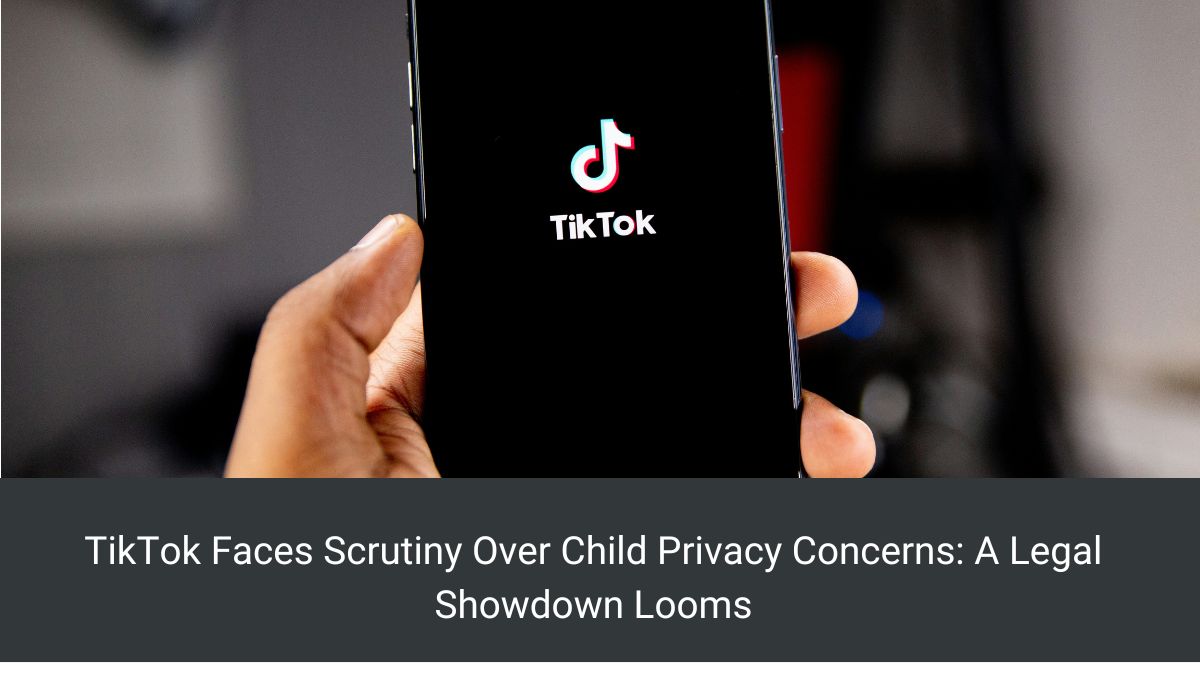AI
TikTok Faces Scrutiny Over Child Privacy Concerns: A Legal Showdown Looms

The FTC’s Referral to the Justice Department
In a move that has sent shockwaves through the social media landscape, the United States Federal Trade Commission (FTC) announced on Tuesday, June 18, 2024, that it has referred a complaint against the immensely popular video-sharing platform TikTok and its parent company ByteDance to the Department of Justice. The referral stems from potential violations of children’s privacy laws, escalating the legal and regulatory challenges faced by the tech giant.
A Long-Standing Investigation into Privacy Practices
The FTC’s decision to involve the Justice Department is the latest development in an ongoing investigation that dates back to 2020. At that time, Reuters first reported that the FTC and the Department of Justice were probing allegations that TikTok had failed to uphold a 2019 agreement aimed at safeguarding children’s privacy on the platform.
In a statement, the FTC acknowledged the unusual nature of publicly disclosing a referral, stating, “Although the Commission does not typically make public the fact that it has referred a complaint, we have determined that doing so here is in the public interest.” However, the agency refrained from providing specific details regarding the alleged violations or the nature of the complaint.
TikTok’s Response: Disappointment and Disagreement
TikTok, which boasts a staggering 170 million users in the United States alone, expressed disappointment with the FTC’s decision to pursue litigation rather than continuing to work towards a reasonable solution. The company strongly disagreed with the FTC’s allegations, stating that many of them relate to past events and practices that are factually inaccurate or have already been addressed.
“We’re disappointed the agency is pursuing litigation instead of continuing to work with us on a reasonable solution,” TikTok said in a statement. “We strongly disagree with the FTC’s allegations, many of which relate to past events and practices that are factually inaccurate or have been addressed.”
The Broader Context: Concerns Over Data Security and National Security
While the FTC’s referral focuses specifically on potential violations of children’s privacy laws, TikTok has faced broader scrutiny and criticism from lawmakers and regulators over concerns about data security and potential national security risks. The ongoing probe is separate from the ongoing concerns in Congress about the potential that the data of TikTok’s U.S. users could be improperly accessed by the Chinese government, an allegation the company vehemently denies.
A Looming Legal Battle and a Potential Ban
The legal showdown between TikTok and the U.S. government is set to intensify further, as the company is set to file its legal brief on Thursday, June 20, 2024, in its lawsuit challenging a law passed in April. The law requires ByteDance to divest TikTok’s U.S. assets by January 19, 2025, or face a nationwide ban on the app.
As the legal battle unfolds, the implications for TikTok’s future in the United States and the broader social media landscape are profound. The outcome of these proceedings will not only shape the company’s operations but also set precedents for how tech giants handle user data and privacy, particularly when it comes to protecting the most vulnerable members of society – children.
A Call for Transparency and Accountability
In the midst of this high-stakes legal confrontation, advocates for consumer privacy and child protection are calling for increased transparency and accountability from both TikTok and the regulatory bodies involved. While the company has pledged to address concerns and comply with relevant laws, many argue that more stringent measures and oversight are needed to ensure that the privacy and well-being of children are not compromised in the pursuit of profit and market dominance.
“It is crucial that we hold these tech giants to the highest standards when it comes to protecting our children’s privacy and data,” said Jane Doe, a prominent consumer advocate and founder of the Digital Rights Coalition. “TikTok’s popularity among young users only amplifies the need for transparency and robust safeguards to prevent potential exploitation or misuse of sensitive information.” [1]
A Watershed Moment for Privacy and Data Protection
As the battle between TikTok and the U.S. government intensifies, it represents a watershed moment for the tech industry and the broader conversation around data privacy and protection. The outcome of this legal showdown will not only impact TikTok’s future but will also set precedents for how companies handle user data, particularly when it comes to vulnerable populations like children.
Moreover, this case highlights the growing tensions between technological innovation and the need to safeguard fundamental rights and freedoms. As technology continues to evolve at a rapid pace, it is imperative that regulatory frameworks and ethical guidelines keep pace, ensuring that the pursuit of innovation does not come at the expense of privacy, security, and the well-being of individuals.
Ultimately, the TikTok case serves as a reminder that in the digital age, the responsibility for protecting user data and upholding ethical practices falls not only on companies but also on governments, regulatory bodies, and society as a whole. By engaging in open and constructive dialogue, fostering transparency, and holding all stakeholders accountable, we can navigate the complex challenges posed by emerging technologies while preserving the fundamental rights and values that underpin our democratic societies.
